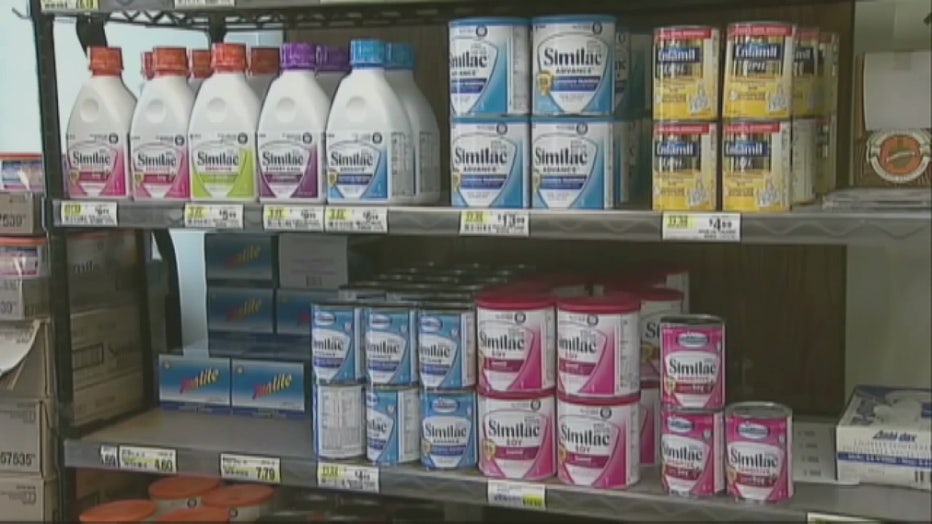'It's scary': Local parents voice concerns over national baby formula shortage
PHILADELPHIA - Parents are growing increasingly concerned over a nationwide baby formula shortage that has gotten so bad that the federal government is now stepping in.
According to analysis from Datasembly, which tracks pricing and other data for retailers, out-of-stock numbers for baby formula have increased 9 percentage points over a two-week period. For the week of April 24, 40% of major brands are sold out nationwide. In six states — Iowa, South Dakota, Missouri, Texas and Tennessee — more than 50% of formula was sold out, analysts say. In San Antonio, Texas, roughly 57% of major baby formula brands are sold out.
Datasembly says the trend started in July 2021 and has continued ever since. In November 2021, 11% of major formula brands were sold out across the U.S. By April of this year, that number had climbed to 31%.
Locally, parents have noticed supplies of baby formula nosedive. Reca Wallace, a mother to a newborn, told FOX 29 that she couldn't find the formula she needed at a South Jersey supermarket.
In response to the shortage, some retail chains have put limits on how many baby formula products you can buy at one time. At Walmart, customers are limited to five cans per day, and at CVS and Walgreens, you can only buy three products at once.
Target told FOX Television Stations in mid-April that it was "closely monitoring" the shortage, but it hasn’t announce in-store purchasing limits. On Target’s website, formula sales are capped at four cans.
"It’s scary sometimes to think that OK maybe we have two bottles left, and we have to get formula, and we might not find it," Mia Deleon said.

Supply chain and production issues were already causing a run on baby formula when formula maker Abbott announced a major powdered formula recall in February. The products - powdered Similac PM, Similac, Ailmentum and Elecare formulas - were linked to several infant hospitalizations, including two deaths, due to a rare bacterial infection.
Abbott told The Wall Street Journal that it’s trying to ramp up production at its facilities, but not the one in Michigan where the recalled formulas were made. Investigators concluded that Abbott failed to maintain sanitary conditions at that plant, which led to the deadly bacterial infections.
Meanwhile, the U.S. government is working with the FDA to get more companies to manufacturer the types of formula that was recalled. For now, pediatricians advice parents to switch to a comparable brand if necessary.
The Associated Press contributed to this report

